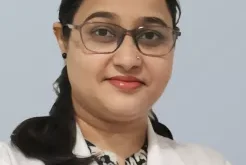Caregivers are the unsung heroes who selflessly support their close ones throughout their health battles, often putting their own needs aside. When cancer strikes, their emotional and financial resilience is tested, making their role even more crucial and challenging. It is this journey that no one should walk alone, and in India today, the shadow of this disease is lengthening, not just in large cities but in every town and village. It is no longer a distant threat; it is a growing health emergency that demands our immediate, empathetic, and informed attention. The fight against cancer begins not in the treatment room, but in our surroundings, with the simple power of awareness.
The Silent Crisis: Unpacking India’s Cancer Load
India is grappling with a significant and increasing cancer burden. According to the data collected by the National Cancer Registry Programme (NCRP) under the Indian Council of Medical Research (ICMR), one in nine Indians is likely to develop cancer during their lifetime. The estimated number of cases is climbing, with projections showing a continued rise in the coming years.
The pattern of the disease is a clear reflection of a country undergoing rapid change. While cancers related to tobacco use, the single largest preventable cause, remain widespread, a new wave of cases is linked to changing lifestyle factors.
- Gender-Specific Concerns:In men, lung cancer is the most common, driven largely by tobacco use. For women, breast cancer and cervical cancer lead the list. Together, these two types represent a substantial proportion of all cancer diagnoses in Indian women.
- The Lifestyle Shift:The rise of non-communicable diseases is fuelling cancer risk. The adoption of sedentary habits, poor diet, often high in processed foods, and increasing rates of obesity and diabetes are creating a metabolic environment that promotes cancer cell growth. Environmental pollutants, particularly air pollution in urban and semi-urban areas, also contribute to this worrying trend, with doctors noting a rise in cancers even among non-smokers and younger age groups.
The Delay: The Challenge of Late Detection
For a disease like cancer, the timing of diagnosis is a matter of life and death. The difference between catching a tumor in its early stages and discovering it late often determines the success of treatment and the cost of care. Tragically, in many parts of India, especially in Tier 2 and semi-metro cities, a majority of patients still present with advanced-stage cancer.
This delay is not due to apathy; it is a systemic challenge rooted in several factors:
- Low Awareness:While the word ‘cancer’ is known, the early warning signs often are not. People frequently dismiss initial symptoms as minor ailments, leading them to delay seeking proper medical advice.
- The Stigma Barrier:Social stigma and cultural taboos, particularly around women’s health issues like breast and reproductive cancers, can make individuals hesitant to get screened or even discuss symptoms with their families or doctors.
- Access and Affordability:Basic cancer screening is often underutilised. While government initiatives like the National Programme for Prevention and Control of Cancer, Diabetes, Cardiovascular Diseases and Stroke (NPCDCS) promote screening for oral, breast, and cervical cancers, the overall participation remains low. The lack of dedicated, easily accessible diagnostic centres in smaller towns means that by the time a patient is referred to a major hospital, precious time has been lost.
This combination of low awareness and delayed access means that treatments become more aggressive, more expensive, and less likely to lead to a full recovery, adding immense stress to families.
The Path to Prevention: Taking Action Today
The message from the medical community is clear: cancer is a fight where prevention and early detection are our most powerful weapons. This is where every individual can take proactive action.
- Embrace Healthier Habits:Simple, consistent choices can significantly lower risk. Quitting all forms of tobacco is the single most impactful step. Maintaining a healthy weight through regular, moderate physical activity and adopting a balanced diet rich in local fruits, vegetables, and whole grains should be a priority for every family.
- Regular Screening Saves Lives:We must normalise and prioritize regular health check-ups and screening tests. For common cancers like breast, cervical, and oral cancer, simple, effective screening methods exist that can detect changes long before they become life-threatening. Talk to your family physician about recommended screening schedules based on age and risk factors.
- Support and Open Communication:Caregivers, families, and communities must foster an environment of open communication where health concerns are discussed without fear or judgment. Early intervention depends on people feeling safe and empowered to speak up about changes in their body.
The increasing burden of cancer in India is a heavy one, but it is not a fixed fate. By transforming awareness into action, and by focusing on prevention and timely diagnosis, we can give millions of Indians a better chance at fighting this disease. We have the data and the medical expertise; now, we need the collective will to prioritize our health and the health of those we love.
Dr Chandrasekhar Prasad Singh , Consultant- Medical Oncology, HCG Abdur Razzaque Ansari Cancer Hospital, Ranchi
 Newspatrolling.com News cum Content Syndication Portal Online
Newspatrolling.com News cum Content Syndication Portal Online





